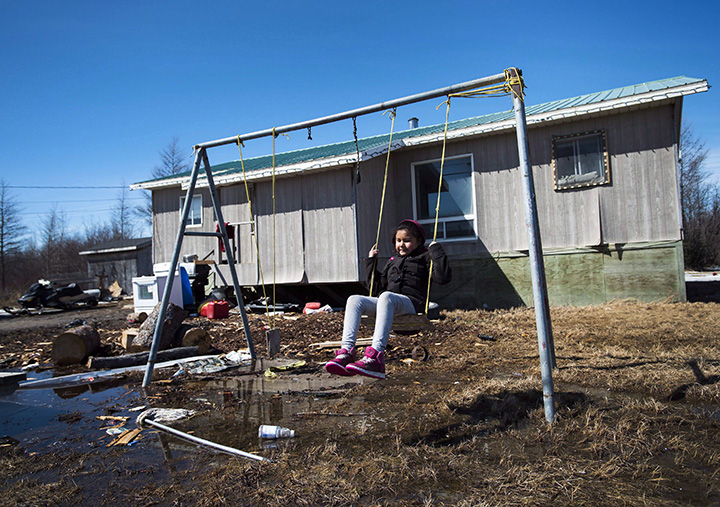OTTAWA – The federal government is still racially discriminating against aboriginal children in its delivery of services on reserves, First Nations advocate Cindy Blackstock told a Commons committee on Thursday.

READ MORE: 87% of Canadians believe aboriginal people experience discrimination: survey
Her testimony comes amid an ongoing tug of war over the government’s response to a landmark ruling from the Canadian Human Rights Tribunal.
One of the central issues is the $71 million the government earmarked in this year’s budget for child welfare — a figure far from sufficient, Blackstock said, pegging the actual need at around $200 million.
Blackstock also challenged the notion that there’s a capacity issue for the delivery of child welfare services.
The government has presented no evidence that more than 100 First Nations agencies, including many which have operated for more than two decades, are somehow all incapable of addressing and implementing services, Blackstock told the committee.
“I think that’s akin to really saying ‘we can’t treat you equally because you’re not capable,'” she said.
“If this was a gender or pay equity issue, I don’t think anybody would get away with saying women aren’t worthy of being treated equally today … that’s the type of argument we are seeing there.”
Responding to the tribunal is not a matter of juggling priorities but an issue of legal compliance, Blackstock added.
“That’s the uncomfortable reality we need to deal with … it is not (about) nice statements by me or by the government,” she said. “It is real change in federal government policy and funding levels.”
On Wednesday, Blackstock’s organization — the First Nations Child and Family Caring Society — submitted a strongly worded submission to the tribunal in response to the government’s compliance reports on child welfare.
READ MORE: What happened to Jim? Experiments on Canada’s indigenous populations
In April, the tribunal ordered the federal government to provide detailed calculations and evidence on why it believes the last budget meets its obligations.
It also gave the Indigenous Affairs Department two weeks to confirm it has implemented Jordan’s Principle — a policy designed to ensure First Nations children can get services without getting caught in red tape.
The tribunal orders followed its January judgment that found the federal government discriminated against children on reserves in its funding of child welfare services.
Isadore Day, the Ontario regional chief for the Assembly of First Nations and the lead for its health portfolio, also pressed the government on Thursday to deliver concrete financial commitments for First Nations mental health.
Funding is critical to address the suicide crisis across the country, he said, noting the federal budget does not contain “historic” funding commitments to address this issue.
“It is status quo,” Day said in an interview. “Let’s face it: we don’t just need words, we need action … If these are preventable deaths, let’s do the investment that we need to.”
One of Day’s central recommendations is a call for bolstered funding for First Nations mental wellness teams across the country — a push backed by NDP indigenous affairs critic Charlie Angus.
At a recent Commons committee, Health Department official Tom Wong admitted the existing 10 teams fall far short of what is needed.
“As I said before, 10 teams is not sufficient and so we would like to actually increase it,” he said.
“If we look at 80 teams, we would be looking at $40 million to $50 million.”



Comments